The 10 Most-Read CRN News Stories Of 2012

Tech News Page Turners
Every year in the technology industry brings significant change, with new technologies evolving as old technologies get phased out. For instance, this year saw Lenovo become the largest PC maker in the world, marking the first time since 2006 that HP hasn't occupied that title. While this would've been a huge story a few years ago, its news-worthiness in 2012 was buried by the very high-profile battle happening in the mobile device market.
So what tech news story got the most eyeballs in 2012? Here we present the 10 most-read news stories on CRN in 2012.
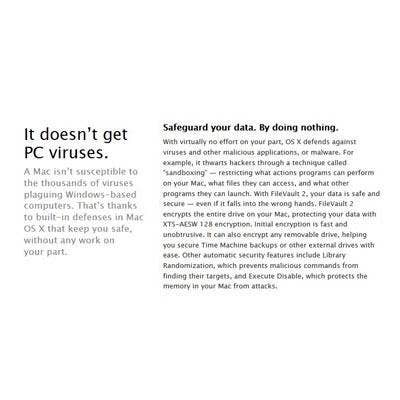
10. Apple Quietly Removes Windows Security Comparisons From Website
Apple's reputation as malware-invincible took a hit in 2012 following the emergence of the first Mac botnet. And with the target on Apple's back growing bigger, the public touting of Mac's security superiority over Windows PCs might not seem like such a good idea anymore. So in June, Apple quietly removed comparisons between the security of Mac OS X and the Windows OS from its Why You'll Love A Mac webpage.
Initially, the site touted that "A Mac isn't susceptible to the thousands of viruses plaguing Windows-based computers. That's thanks to built-in defenses in Mac OS X that keep you safe, without any work on your part."
The site then unexpectedly changed its message to the more subtle "Built-in defenses in OS X keep you safe from unknowingly downloading malicious software on your Mac." Apple also changed its description of OS X from "It doesn't get PC viruses" to "It's built to be safe."

9. VMware's 'Project Zephyr' Challenges Amazon, Microsoft In Public Cloud Battle
VMware's lofty cloud ambitions came to light in August with the unveiling of its plans to launch a public cloud infrastructure-as-a-service initiative, code-named Project Zephyr. While the move puts VMware in position to compete with public cloud players, it's also being viewed as a direct response to failure by its service provider partners to sell to the channel. And predictably, many of VMware's partners in the cloud space were not pleased.
But not all of VMware's partners are viewing the Project Zephyr glass as half empty. The public cloud play could open the door for some solution providers to help with upfront consulting and the transition process of bringing customers to Project Zephyr.

8. Oracle, HP Release Documents That Paint Ugly Pictures Of Each Other
Oracle's 2011 decision to stop Intel Itanium software development was viewed as a direct shot at HP, which used the processors almost exclusively. HP responded by filing a civil suit against Oracle, which it ultimately won in July with a ruling that Oracle is contractually committed to developing the software. While the ruling seemed simple, the mudslinging between HP and Oracle and the series of suits and countersuits were a hot mess. In May, a series of unpublished documents was released, including internal emails from both companies. Oracle posted 12 documents it claims shows that HP knew in advance of the dispute that Intel was planning to end development of the processor. HP responded by releasing seven internal documents from both companies it said shows HP's long-term Integrity server plans and that Oracle is using the dispute as a way to stagger HP's hardware business. The messages between high-profile execs at both HP and Oracle included plenty of ethically questionable moves and at least one comparison of defunct Oracle property Sun Microsystems to a pig with lipstick.
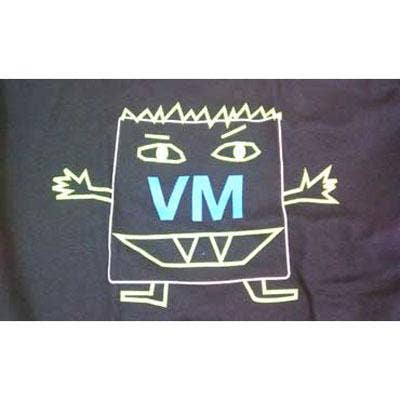
7. VMware To Embed EMC Storage Tech In vSphere, Could Shake Up Partnerships
VMware's decision in August to embed EMC's Avamar backup software in its vSphere platform raised quite a few eyebrows in the channel. Embedding Avamar Virtual Edition in VMware's vSphere 5.1 platform allows users to back up a 2 TBs of data free of charge. While that's a nice addition for users, the move flies in the face of VMware partners who sell Symantec and Veeam. So much so that it caused one solution provider to wonder if VMware would eventually start selling storage.
The move, in addition to Pat Gelsinger's promotion to the head of VMware, is a strong indicator that VMware's independence as separate entity from EMC is thinning.
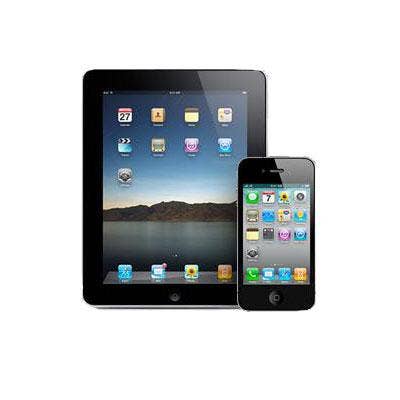
6. Apple, VMware Team On iPad Microsoft Office Killer
It was a busy fall for Microsoft with the launch of Windows 8 signifying its most serious foray into mobility. And with rumors of an Office version for iOS coming this spring, it's probably safe to say Apple isn't as excited as Microsoft is about its ultra-successful enterprise software making its way onto iOS devices. In October, CRN learned that Apple and VMware are teaming on an iPad Microsoft Office killer that combines Apple's cloud-hosted versions of iWork suite with VMware View virtual desktop software.
It seems as if the components of Apple's Work suite are already positioned to be an alternative to the components of Office, with Pages, Keynote and Numbers targeting Word, PowerPoint and Excel respectively. Cost and the document-sharing capabilities Apple already has with iCloud could be a significant advantage for the new iWork suite. But with the Office 2013 release designed specifically for Windows 8's touch-screen interface, it should be interesting to see how iOS users respond this spring.
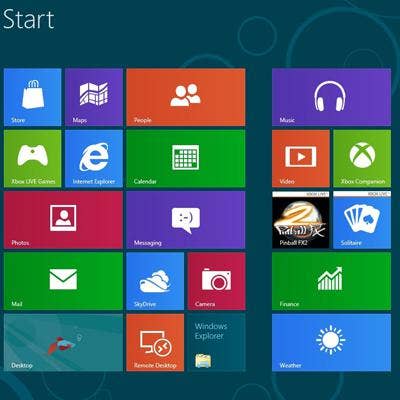
5. Microsoft Looks To Stall iPad With New Windows 8 VDI License
In April, Microsoft announced that it is tweaking its software licensing to make it more expensive for organizations to remotely access virtual desktops using non-Windows tablets. The Companion Device License (CDL) with Windows 8 gives customers access to corporate desktops through a virtual desktop infrastructure on up to four personally owned devices.
Microsoft executives have spun the CDL as a fair way for organizations to pay for the value they derive from using Windows on iPad and Android devices. But this was clearly a shot at Apple and Google as Microsoft ramped up its charge into the mobility space with Windows 8.

4. VMware Blockbuster: Maritz Out As CEO After Four-Year Tenure
In true summer blockbuster fashion, CRN learned in July that Paul Maritz would be out as VMware CEO, being replaced by the president and COO of EMC's Information Infrastructure Products division, Pat Gelsinger. The move initially sparked rumors that Maritz was lining up to replace EMC CEO Joe Tucci, but reports recently surfaced that he is being tapped to run EMC's new big data spin off, the Pivotal Initiative.
The executive shuffle is yet another sign in the long speculated idea that the lines of separation are starting to blur between EMC and VMware (see slide 5). The Maritz-run Pivotal Initiative, in which VMware is combining its platform-as-a-service (PaaS) offerings with EMC's big data technology, will include 600 VMware and 800 EMC employees.
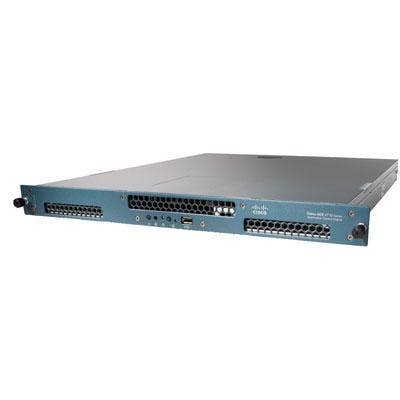
3. Cisco Ceasing Development Of Load-Balancer Products
In September, Cisco confirmed it is ending the development of its Application Control Engine (ACE) load-balancer products. Rumors of Cisco's ACE scale-down began to circulate following a report that Cisco asked its salespeople to pull back from selling ACE. The move is being viewed as a concession by Cisco to its competitors in the application delivery networking (ADN) market, most notably F5 Networks and Citrix.
Cisco's ACE products are the modules of its Catalyst 6500 switches and 7600 routers, which provide load-balancing, content-switching, application acceleration and security capabilities. According to Dell'Oro Group and other research firms, Cisco's share of the ADN space is only about 11 percent to 12 percent.
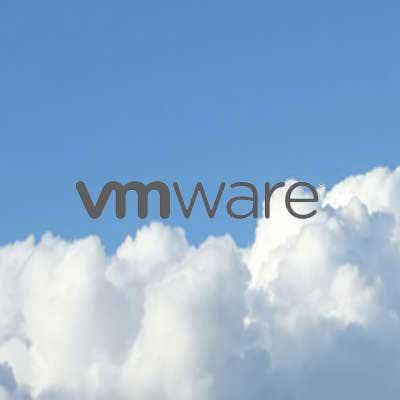
2. VMware Kills vRAM Licensing, Will Focus On vSphere Cloud Bundles
In July of 2011, VMware customers were up in arms about a new licensing model for vRAM coming in vSphere 5 that would amount to a significant price hike in various cases. In anticipation of the release of vSphere 5.1, VMware responded to the frustration announcing in August that it would be getting rid of the vRAM licensing program and will focus on marketing vSphere, its cloud operating system. "Last year we created a four-letter dirty word called vRAM; ... we are now striking this word from our vocabulary," said VMware CEO Pat Gelsinger at his VMworld keynote.
Of course, ditching vRAM isn't solely a PR move to please customers. With Microsoft referring to the entitlement as "vTax" in a campaign to lure VMware customers, sources told CRN that the move was done in part to gain an advantage over Microsoft, which is adding several enterprise features to its release of Hyper-V 3.

1. Exclusive: Microsoft's Ballmer Throws Down Gauntlet Against Apple
With Windows 8 on the way, Microsoft unveiled the Surface in June, a tablet that would be built much like Apple's, integrating its own hardware and software. In one of his first interviews after the announcement, CRN met with Steve Ballmer to talk about Microsoft gunning for Apple's share of the mobility market. "We are trying to make absolutely clear we are not going to leave any space uncovered to Apple," Ballmer told CRN.
The big question was whether or not partners would be able to sell Surface, which has only been available in Microsoft's retail stores and online at its website. "If a partner says, 'Hey look I want to sell some of these things. I want to put them in solutions,' they can order some off Microsoft.com and sell them," said Ballmer. "There is nothing that gets in the way of that. But, we have not set up what I would call industrial distribution as sort of a first element. We may get there." We haven't gotten there quite yet. Surface is now available at Best Buy and Staples, but its availability for channel distribution remains a mystery.